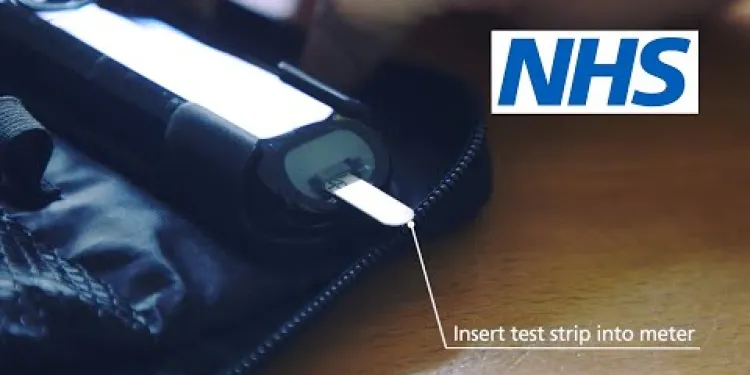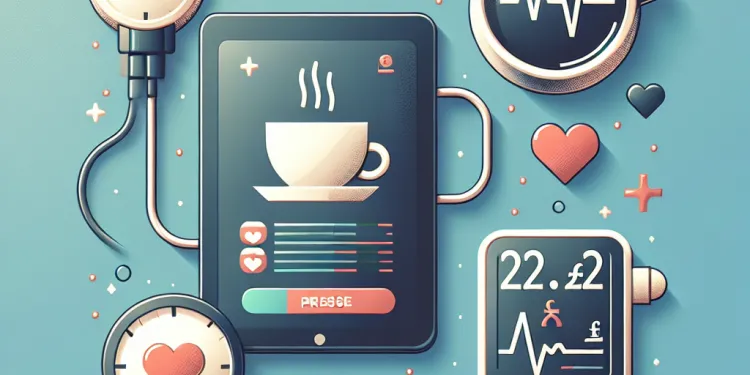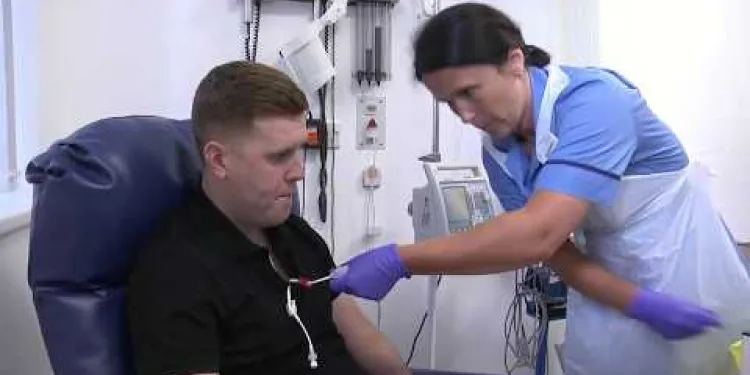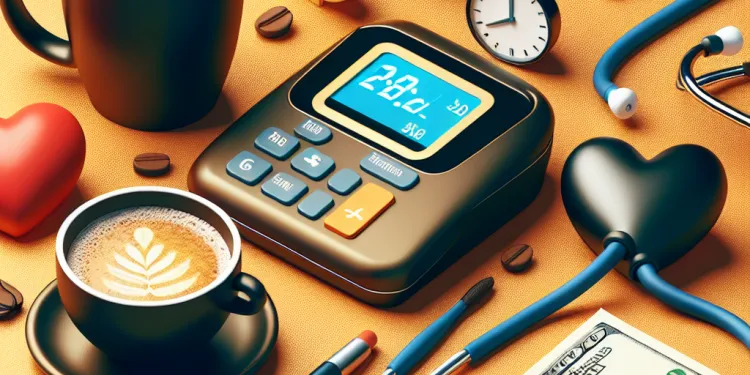
Find A Professional
More Items From Ergsy search
-

How often should I check my blood glucose levels?
Relevance: 100%
-

Diabetes: How to check your blood glucose level | NHS
Relevance: 94%
-

Seven Reaasons For Measuring blood pressure
Relevance: 66%
-

4 facts about blood cancer that you should know | NHS
Relevance: 64%
-

Blood Transfusion
Relevance: 64%
-

What is the role of insulin in Type 2 Diabetes?
Relevance: 63%
-

Are there any other factors in coffee that may affect blood pressure?
Relevance: 62%
-

Is there a specific time of day when coffee has the most impact on blood pressure?
Relevance: 58%
-

Is it safe to take blood pressure medication with coffee?
Relevance: 54%
-

Having a blood test
Relevance: 52%
-

Blood Product Transfusions
Relevance: 52%
-

How can one minimize the impact of coffee on blood pressure?
Relevance: 50%
-

How does Ozempic affect blood sugar levels?
Relevance: 50%
-

How much caffeine is generally considered safe for people with high blood pressure?
Relevance: 49%
-

Should people with high blood pressure avoid coffee entirely?
Relevance: 48%
-

How is Type 2 Diabetes diagnosed?
Relevance: 47%
-

How is Type 2 Diabetes treated?
Relevance: 46%
-

How soon after drinking coffee can blood pressure be affected?
Relevance: 45%
-

What are PSA levels? - Prostate Cancer
Relevance: 45%
-

How does caffeine affect blood pressure?
Relevance: 44%
-

Is Your Morning Coffee a Risk Factor for High Blood Pressure?
Relevance: 42%
-

Can stress affect my Type 2 Diabetes?
Relevance: 42%
-

Does drinking coffee every morning increase the risk of developing high blood pressure?
Relevance: 41%
-

Can Ozempic cause low blood sugar (hypoglycemia)?
Relevance: 40%
-

Can Mounjaro be mixed with insulin?
Relevance: 39%
-

How to manage type 2 diabetes
Relevance: 38%
-

Is green tea a better alternative to coffee for blood pressure management?
Relevance: 38%
-

How effective is Mounjaro in controlling blood sugar levels?
Relevance: 38%
-

How does Ozempic work?
Relevance: 38%
-

Improving outcomes for people with diabetes
Relevance: 36%
-

Is there any risk of hypoglycemia with Mounjaro?
Relevance: 34%
-

What are the symptoms of Type 2 Diabetes?
Relevance: 33%
-

Does genetic makeup affect how coffee impacts blood pressure?
Relevance: 33%
-

What complications are associated with Type 2 Diabetes?
Relevance: 31%
-

Can stress related to caffeine consumption affect blood pressure?
Relevance: 31%
-

Blood pressure too high? Living with hypertension animation
Relevance: 30%
-

Cardiac Physiology Walkthrough
Relevance: 30%
-

How to take someone's blood pressure
Relevance: 29%
-

How does Mounjaro work?
Relevance: 29%
-

Can decaffeinated coffee affect blood pressure?
Relevance: 29%
Introduction to Blood Glucose Monitoring
Monitoring blood glucose levels is an essential part of managing diabetes, whether it's Type 1, Type 2, or gestational diabetes. Understanding how often to check your blood glucose can help you maintain optimal health and prevent complications associated with diabetes. The frequency of testing varies based on individual needs, type of diabetes, and treatment plans.
Factors Influencing Testing Frequency
Several factors influence how often you should check your blood glucose levels, including the type of diabetes you have, your treatment plan, your blood glucose goals, and any other health conditions you may have. For example, individuals on insulin therapy may need to monitor their levels more frequently than those managing their diabetes through diet and oral medications alone.
Type 1 Diabetes
For people with Type 1 diabetes, frequent blood glucose testing is crucial. It is generally recommended to check levels before meals and snacks, prior to physical activity, before bed, and sometimes during the night. Regular monitoring helps in adjusting insulin doses and managing carbohydrate intake.
Type 2 Diabetes
Individuals with Type 2 diabetes who are on insulin might need to test their glucose levels several times a day, similar to those with Type 1 diabetes. However, those who manage their condition with oral medications, diet, and exercise may only need to test once a day or even less frequently. Healthcare professionals will provide personalized advice based on the specific treatment plan and targets.
Gestational Diabetes
Pregnant women with gestational diabetes are usually advised to monitor their blood glucose levels closely to protect both their health and the health of their baby. It's common to test four times a day: fasting, and one hour after each meal, to ensure glucose levels remain within the target range.
Consulting Healthcare Professionals
It's important to consult with healthcare professionals to establish a testing routine that suits your needs. Diabetes UK and other healthcare providers can offer guidance tailored to individual circumstances and can help adjust testing frequency as needed over time.
Adapting to Lifestyle and Treatment Changes
Changes in lifestyle or treatment, such as starting a new medication or experiencing different levels of physical activity, may necessitate changes to your testing routine. Continuous monitoring and adaptation are vital to maintaining control over diabetes in the long term.
Conclusion
Regular blood glucose monitoring is key to effective diabetes management. While general guidelines offer an initial framework, individual testing frequencies should be customized based on personal needs and in consultation with healthcare providers. Keeping a track of glucose levels helps in making informed decisions about lifestyle, diet, and medication, ensuring better health outcomes.
Frequently Asked Questions
How often should I check my blood glucose levels if I have type 1 diabetes?
If you have type 1 diabetes, it's generally recommended to check your blood glucose levels at least 4 to 10 times per day, including before and after meals, before and after exercise, and before bed.
How often should I check my blood glucose levels if I have type 2 diabetes?
For type 2 diabetes, the frequency of checking blood glucose levels varies depending on your treatment plan. Some people may need to check once daily, while others may check multiple times. Follow your healthcare provider's advice.
Do I need to check my blood glucose levels if I am newly diagnosed with diabetes?
Yes, checking your blood glucose levels can help you and your healthcare provider understand how well your treatment plan is working and make necessary adjustments.
How often should I check my blood glucose levels if I am pregnant with gestational diabetes?
If you have gestational diabetes, you'll likely need to monitor your blood glucose levels several times a day, such as before meals and one to two hours after eating. Follow your healthcare provider's recommendations.
What time of the day should I check my blood glucose levels?
Common times to check blood glucose levels include before meals, two hours after meals, and at bedtime. Your healthcare provider might suggest specific times based on your treatment plan.
Can I stop checking my blood glucose levels if they are always within the normal range?
It's important to continue checking your blood glucose levels as advised by your healthcare provider, even if they are within the target range, to ensure ongoing management and detection of any changes.
How often should I check my blood glucose levels if I'm on insulin therapy?
If you're on insulin therapy, you may need to check your blood glucose levels multiple times a day, such as before meals, at bedtime, and sometimes overnight. Follow your healthcare provider's guidance.
How often should I check my blood glucose levels if I'm taking oral diabetes medications?
If you're taking oral diabetes medications, you might need to check your blood glucose levels less frequently. Common recommendations are once or twice a day, but follow your healthcare provider's advice.
Should I check my blood glucose levels more often if I'm sick?
Yes, it's a good idea to check your blood glucose levels more often when you're sick, as illness can affect your blood sugar levels.
How can I keep track of my blood glucose levels?
You can use a logbook, app, or a continuous glucose monitor to track your blood glucose levels. This helps you and your healthcare provider make informed decisions about your treatment plan.
How often should I check my blood glucose levels if I’m using a continuous glucose monitor (CGM)?
With a CGM, you get continuous real-time readings. However, you may still need to do fingerstick checks to calibrate the device or confirm certain readings as advised by your healthcare provider.
What factors might influence how often I need to check my blood glucose levels?
Factors can include the type of diabetes, your treatment plan, whether you're on insulin, your overall diabetes management goals, and any changes in your routine or health status.
How does exercise affect how often I should check my blood glucose levels?
Exercise can lower blood glucose levels, so you may need to check them before, during, and after physical activity, especially if you're on insulin or medications that increase insulin levels.
How often should I check my blood glucose levels if I’m trying to get pregnant and have diabetes?
If you're planning to become pregnant and have diabetes, frequent monitoring is important for optimal blood glucose control before and during pregnancy. Consult your healthcare provider for a specific plan.
What should I do if I notice consistent changes in my blood glucose levels?
Contact your healthcare provider if you observe significant changes in your blood glucose levels. They can help determine the cause and adjust your treatment plan if necessary.
How often should I check my blood glucose levels if my A1C levels are within target range?
Even if your A1C is within target range, you should continue to monitor your blood glucose levels as recommended by your healthcare provider to maintain control and adjust your regimen as needed.
How do stress or changes in my daily routine affect how often I should check my blood glucose levels?
Stress and changes in routine can impact blood glucose levels, so you may need to check more often during these times to manage any variations effectively.
How often should I check my blood glucose levels during travel?
During travel, check your blood glucose levels more frequently as different meal times, activity, and potential stress can affect your levels. Plan ahead and consult your healthcare provider.
How often should I check my blood glucose levels for effective diabetes management?
Effective diabetes management requires personalized monitoring. Your healthcare provider will recommend how often you should check based on your treatment goals, medication, and lifestyle.
How can checking my blood glucose levels regularly help in my overall health management?
Regular monitoring helps you track daily fluctuations and respond to changes promptly, contributing to better long-term health outcomes and reducing risks of diabetes-related complications.
Useful Links
- Ergsy carfully checks the information in the videos we provide here.
- Videos shown by Youtube after a video has completed, have NOT been reviewed by ERGSY.
- To view, click the arrow in centre of video.
- Most of the videos you find here will have subtitles and/or closed captions available.
- You may need to turn these on, and choose your preferred language.
- Go to the video you'd like to watch.
- If closed captions (CC) are available, settings will be visible on the bottom right of the video player.
- To turn on Captions, click settings .
- To turn off Captions, click settings again.
More Items From Ergsy search
-

How often should I check my blood glucose levels?
Relevance: 100%
-

Diabetes: How to check your blood glucose level | NHS
Relevance: 94%
-

Seven Reaasons For Measuring blood pressure
Relevance: 66%
-

4 facts about blood cancer that you should know | NHS
Relevance: 64%
-

Blood Transfusion
Relevance: 64%
-

What is the role of insulin in Type 2 Diabetes?
Relevance: 63%
-

Are there any other factors in coffee that may affect blood pressure?
Relevance: 62%
-

Is there a specific time of day when coffee has the most impact on blood pressure?
Relevance: 58%
-

Is it safe to take blood pressure medication with coffee?
Relevance: 54%
-

Having a blood test
Relevance: 52%
-

Blood Product Transfusions
Relevance: 52%
-

How can one minimize the impact of coffee on blood pressure?
Relevance: 50%
-

How does Ozempic affect blood sugar levels?
Relevance: 50%
-

How much caffeine is generally considered safe for people with high blood pressure?
Relevance: 49%
-

Should people with high blood pressure avoid coffee entirely?
Relevance: 48%
-

How is Type 2 Diabetes diagnosed?
Relevance: 47%
-

How is Type 2 Diabetes treated?
Relevance: 46%
-

How soon after drinking coffee can blood pressure be affected?
Relevance: 45%
-

What are PSA levels? - Prostate Cancer
Relevance: 45%
-

How does caffeine affect blood pressure?
Relevance: 44%
-

Is Your Morning Coffee a Risk Factor for High Blood Pressure?
Relevance: 42%
-

Can stress affect my Type 2 Diabetes?
Relevance: 42%
-

Does drinking coffee every morning increase the risk of developing high blood pressure?
Relevance: 41%
-

Can Ozempic cause low blood sugar (hypoglycemia)?
Relevance: 40%
-

Can Mounjaro be mixed with insulin?
Relevance: 39%
-

How to manage type 2 diabetes
Relevance: 38%
-

Is green tea a better alternative to coffee for blood pressure management?
Relevance: 38%
-

How effective is Mounjaro in controlling blood sugar levels?
Relevance: 38%
-

How does Ozempic work?
Relevance: 38%
-

Improving outcomes for people with diabetes
Relevance: 36%
-

Is there any risk of hypoglycemia with Mounjaro?
Relevance: 34%
-

What are the symptoms of Type 2 Diabetes?
Relevance: 33%
-

Does genetic makeup affect how coffee impacts blood pressure?
Relevance: 33%
-

What complications are associated with Type 2 Diabetes?
Relevance: 31%
-

Can stress related to caffeine consumption affect blood pressure?
Relevance: 31%
-

Blood pressure too high? Living with hypertension animation
Relevance: 30%
-

Cardiac Physiology Walkthrough
Relevance: 30%
-

How to take someone's blood pressure
Relevance: 29%
-

How does Mounjaro work?
Relevance: 29%
-

Can decaffeinated coffee affect blood pressure?
Relevance: 29%